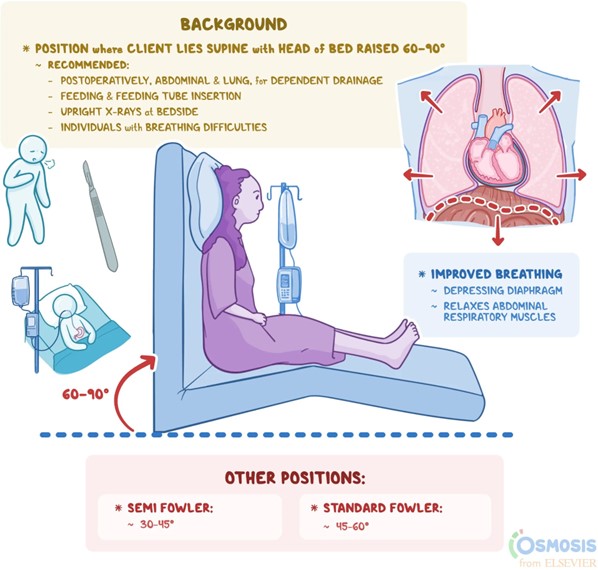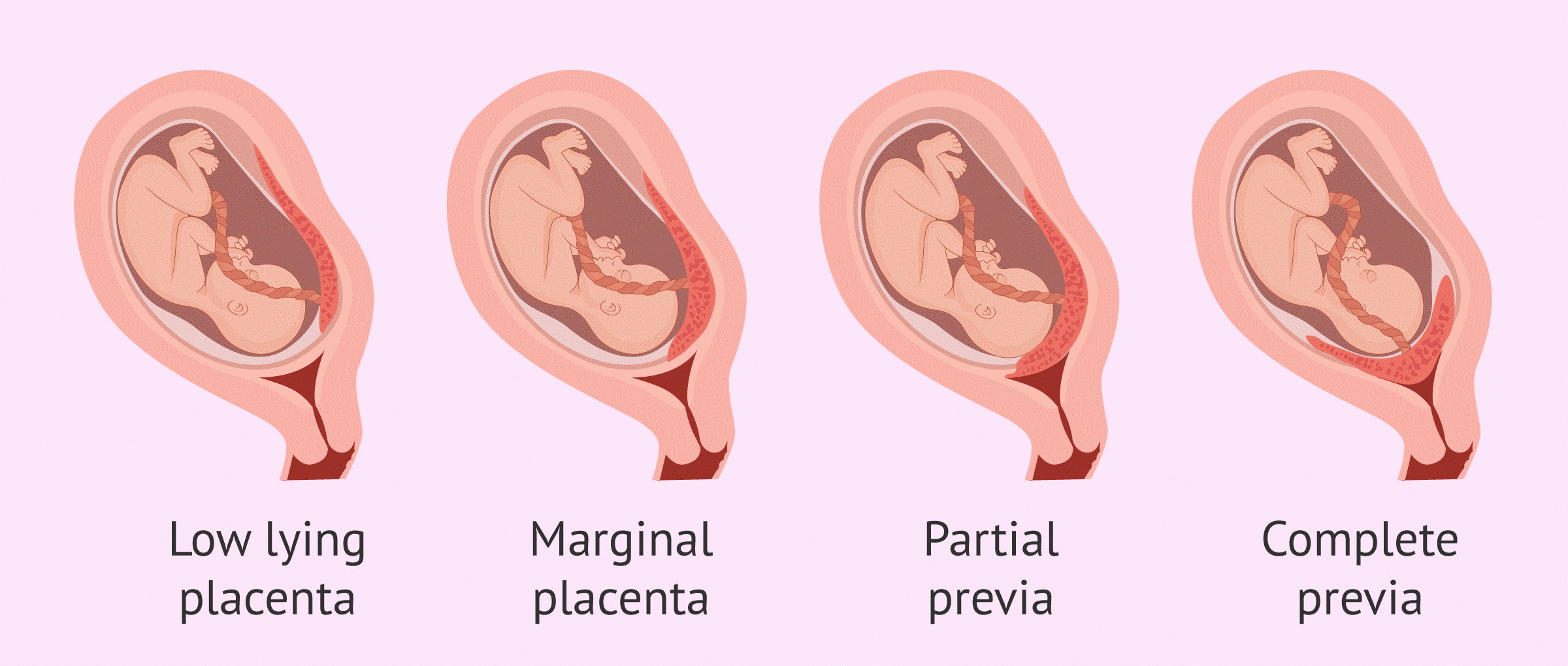A nurse is collecting data from a client who has heart failure. The nurse notes the client has crackles in the bases of the lungs and a respiratory rate of 24/min. Which of the following actions should the nurse take?
Increase the client's intake of oral fluids.
Instruct the client to cough every 4 hr.
Encourage the client to ambulate to loosen secretions.
Maintain the client in high-Fowler's position.
The Correct Answer is D
The client's crackles in the bases of the lungs and an increased respiratory rate indicate the presence of fluid accumulation in the lungs, which is commonly seen in clients with heart failure. Maintaining the client in a high Fowler's position helps to promote optimal lung expansion and ventilation by reducing the pressure on the diaphragm, allowing for improved breathing mechanics and enhanced oxygenation.

Increasing the client's intake of oral fluids: While maintaining hydration is generally important, increasing oral fluids may not directly address the issue of fluid accumulation in the lungs. The priority in this situation is to optimize the client's respiratory function.
Instructing the client to cough every 4 hours: Coughing alone may not be sufficient to resolve the fluid accumulation. The underlying cause of the crackles and increased respiratory rate in heart failure is fluid congestion, which requires more comprehensive management.
Encouraging the client to ambulate to loosen secretions: While ambulation is generally beneficial for clients with heart failure, it may not directly address the fluid accumulation in the lungs. Ambulation can help improve overall cardiovascular function and fluid balance, but in the presence of acute respiratory distress or significant fluid overload, the client may not be able to tolerate or benefit from ambulation immediately.
In addition to maintaining the client in a high-Fowler's position, the nurse should also collaborate with the healthcare provider to initiate appropriate interventions, such as administering diuretic medications to help remove excess fluid and improve respiratory status. Monitoring the client's oxygen saturation, providing supplemental oxygen as needed, and assessing other vital signs are also important aspects of care in managing heart failure-related respiratory symptoms.
Nursing Test Bank
Naxlex Comprehensive Predictor Exams
Related Questions
Correct Answer is D
Explanation
Bright red vaginal bleeding
Placenta previa is a condition in which the placenta partially or completely covers the opening of the cervix. One of the hallmark findings of placenta previa is painless, bright red vaginal bleeding, typically occurring in the later stages of pregnancy. This bleeding can be sudden and heavy or intermittent. It is important for the nurse to recognize this sign and promptly report it to the healthcare provider.
Increased fetal movement in (option A) is incorrect: Fetal movement is not directly related to placenta previa and may vary depending on the individual fetus.
Persistent uterine contractions in (option B): Persistent uterine contractions are more commonly associated with conditions such as preterm labour or uterine irritability, rather than placenta previa.
Rigid abdomen in (option C): A rigid abdomen may indicate uterine hypertonus or other complications, but it is not a specific finding of placenta previa.

Correct Answer is C
Explanation
The shoulder harnesses of the car seat should be adjusted to fit the infant properly. The straps should be positioned at or below the level of the infant's shoulders to ensure a secure fit and proper restraint.
Infants should always be placed in a rear-facing car seat in the back seat of the vehicle. If the car seat is placed in the front seat, the airbag should be turned off to prevent potential harm to the infant in case of airbag deployment.
Do not put a small cushion under the newborn's head for support: It is important to follow the manufacturer's guidelines for the specific car seat being used. Additional cushions or supports should not be added to the car seat as they can interfere with the proper fit and safety of the seat. The infant's head should be supported by the car seat itself.
Infants should be placed in a rear-facing car seat at a reclined angle of approximately 45 degrees. This helps to keep the infant's airway open and provides proper support for their head and neck.
Whether you are a student looking to ace your exams or a practicing nurse seeking to enhance your expertise , our nursing education contents will empower you with the confidence and competence to make a difference in the lives of patients and become a respected leader in the healthcare field.
Visit Naxlex, invest in your future and unlock endless possibilities with our unparalleled nursing education contents today
Report Wrong Answer on the Current Question
Do you disagree with the answer? If yes, what is your expected answer? Explain.
Kindly be descriptive with the issue you are facing.
